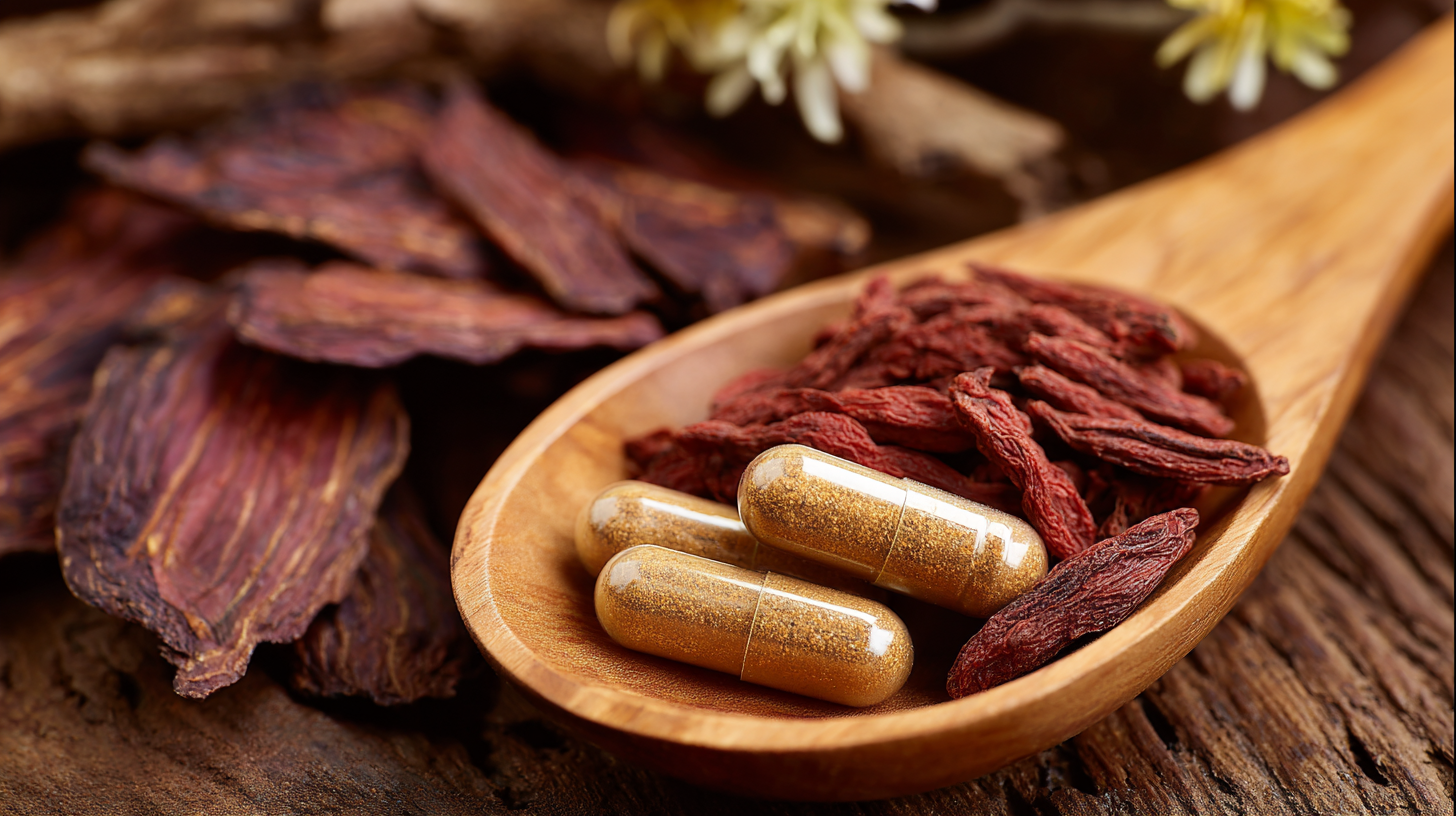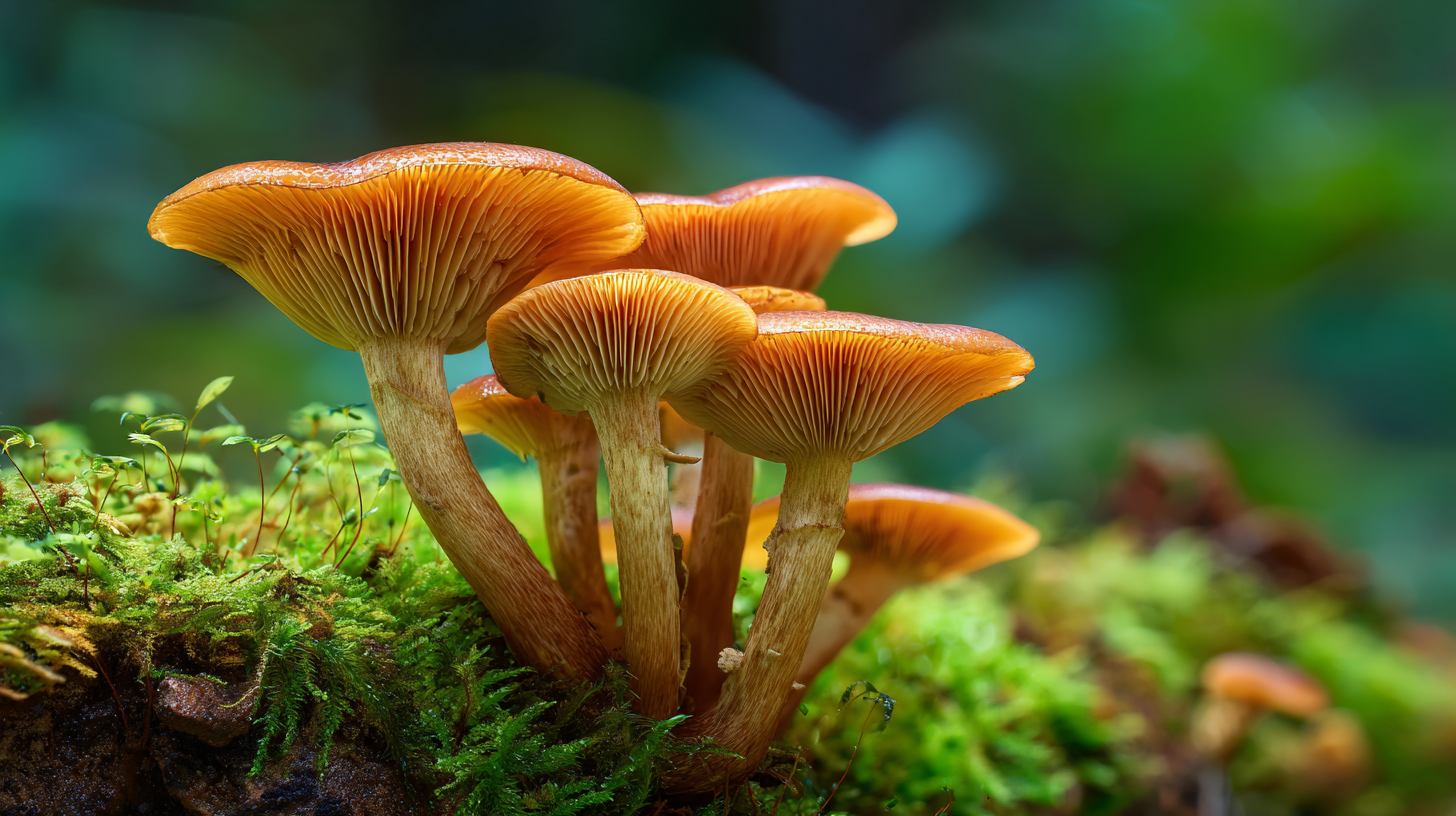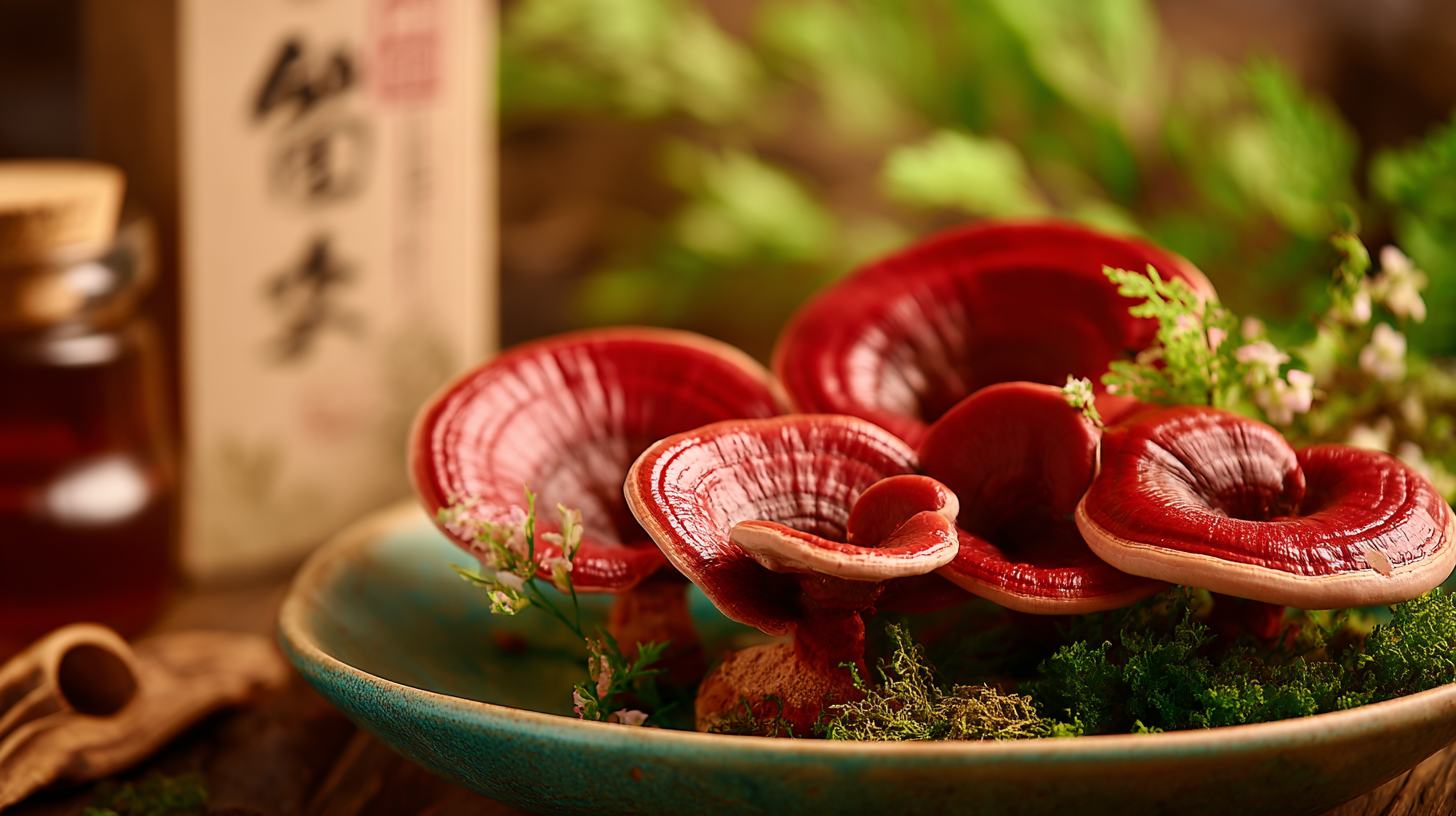As the popularity of wellness supplements continues to surge, the Reishi Mushroom Supplement has emerged as a frontrunner in the realm of natural health solutions, celebrated for its potential immune-boosting properties and stress-relief benefits. According to a recent report by the Global Market Insights, the medicinal mushroom market is projected to reach over $60 billion by 2027, with Reishi mushrooms accounting for a significant portion of this growth due to their versatility and potency. However, with this rise in popularity, a myriad of products flood the market, often lacking quality assurance and transparency. Many consumers are unaware of the hidden issues ranging from ingredient sourcing to extraction methods that can substantially impact the efficacy of these supplements. By addressing these concerns, we aim to provide clarity on the diverse types of Reishi Mushroom Supplements available, helping consumers make informed decisions tailored to their health needs.

The market for Reishi mushroom supplements has seen a surge in popularity as consumers increasingly seek natural remedies for health enhancement. However, the quality of these supplements can vary significantly. A recent report by the National Institutes of Health highlighted that as much as 50% of commercial Reishi products fail to meet industry potency standards, raising concerns about the efficacy of these supplements. This inconsistency is largely attributed to factors such as sourcing, processing methods, and the lack of standardized production practices.
Moreover, a study published in the Journal of Herbal Medicine found that 30% of Reishi products tested contained misidentified species or contaminants, which indicates a critical lapse in quality control. These findings underscore the importance of third-party testing and transparency within the supply chain. As consumers become more educated about the potential disparities in quality, the demand for rigorously tested and verified supplements is likely to grow, compelling manufacturers to adopt more stringent quality assurance measures.

Processing methods play a crucial role in determining the efficacy of Reishi mushroom extracts. Traditionally, Reishi mushrooms were consumed in their whole form or brewed into teas, allowing for a natural extraction of beneficial compounds. However, with the rise of the supplement market, many products undergo extensive processing that can alter their bioactive profiles. Common techniques, such as hot water extraction or alcohol extraction, can significantly affect the levels of polysaccharides, triterpenes, and other important constituents, which are responsible for Reishi's many health benefits.
Moreover, not all manufacturing processes are created equal. Some methods may prioritize yield over the preservation of active compounds, resulting in supplements that lack the potency found in high-quality extracts. As consumers increasingly turn to Reishi for its immune-boosting and stress-reducing properties, it is essential to pay attention to the extraction techniques used in production. Understanding these hidden issues can empower consumers to make informed choices, ensuring they select supplements that deliver the full spectrum of benefits associated with this revered mushroom.
The growing popularity of Reishi mushroom supplements has resulted in a saturated market, wherein not all products deliver the expected health benefits. Understanding the active compounds within Reishi, particularly triterpenes and polysaccharides, is vital for consumers seeking effective supplements. Recent research indicates that triterpenes contribute to Reishi’s anti-inflammatory and immune-boosting properties, with studies showing that specific triterpenes can reduce inflammation markers by up to 60% (Journal of Ethnopharmacology, 2021).
Moreover, polysaccharides in Reishi, which have been linked to enhanced immune function, are often found in significantly varying concentrations across different products. A 2022 report from the American Herbal Products Association highlights that many commercially available supplements contain less than 10% of the active polysaccharides required to manifest health benefits. This disparity emphasizes the necessity for consumers to seek products backed by rigorous testing and to be informed about the specific concentrations of these active compounds to ensure they are receiving genuine therapeutic effects. Understanding these components allows for more informed choices, promoting better health outcomes and maximizing the potential benefits of Reishi supplements.
This chart illustrates the relative levels of key active compounds found in common Reishi mushroom supplements available on the market today. The compounds are important for their potential health benefits.
When navigating the vast market of Reishi mushroom supplements, it is crucial for consumers to be informed about how to identify reliable products. Many supplements claim to harness the powerful health benefits of Ganoderma lucidum, but not all are created equal. To make an educated choice, consumers should look for standardized extracts which specify the levels of active compounds such as triterpenes and polysaccharides. Labels that list these percentages provide a clear indication of the product’s potency and efficacy.
Additionally, transparency in sourcing and manufacturing practices is vital. Consumers should seek out brands that disclose where their mushrooms are cultivated and how they are processed. Third-party testing results can also serve as a reassuring sign of quality, confirming that the product is free from contaminants and meets safety standards. By being diligent in examining labels, consumers can protect themselves from misleading claims and invest in supplements that genuinely support their health and wellness goals.
Reishi mushrooms, often revered in traditional medicine, are gaining attention in today's wellness market. Recent evidence-based research highlights their numerous health benefits, particularly their potential to bolster immune function, reduce stress, and promote overall well-being. Unlike other supplements, reishi’s polysaccharides and triterpenes are emerging as crucial components that contribute to these effects. This has sparked interest in how to effectively harness these compounds for maximum health benefits.

However, with the influx of reishi supplements available, it is essential to scrutinize their quality and efficacy. Not all products on the market contain the potent and beneficial components of the mushroom. As seen with other dietary supplements, such as soy—which has been shown to lower heart disease risk—consumers must stay informed about the products they choose. By focusing on evidence-based practices and understanding the legitimate health claims associated with reishi mushrooms, individuals can make more educated decisions that align with their wellness goals. The rise of millennial and Gen Z consumers has already begun to drive a trend towards products that are scientifically validated, emphasizing the importance of transparency in what we consume.
2025 Bio-Botanica, a division of Bio Answer Holdings Inc. All Rights Reserved.